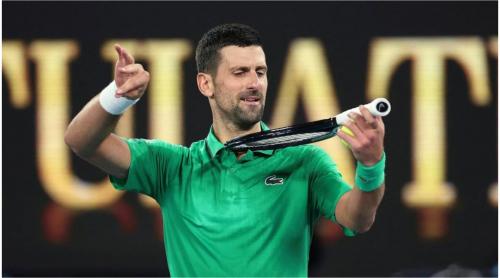
New York, March 1, 2006
MLS In the essays that accompany the interviews in your book, you speak about the social role of the philosopher as "public intellectual". What is the main difference in approaching this role between Derrida and Habermas?
GB: The "public intellectual" is a European figure, and Habermas and Derrida are both public intellectuals in the distinctly European sense. Historically, the public intellectual emerged in France around the affaire Dreyfus, which broke out in 1894. When the Jewish Captain of the French Army, Alfred Dreyfus, was unjustly accused of spying for the Germans, Emile Zolaâs article "Jâaccuse," written in defense of Dreyfusâs innocence and denouncing the anti-semitism implicit in the allegations, created a public uproar which brought the Third Republic to its feet. It was during this political crisis that the word ""intellectual"" first surfaced on the public debate and revealed the political influence that philosophers and writers, like Voltaire and Rousseau, had exercised since the French Revolution. Starting in the early 1940s, Sartre argued that intellectuals did not have the privilege of distance or detachment from the political tensions of their age. The ongoing dialogue that Habermas and Derrida have engaged with Enlightenment thinkers, and particularly with Kant, has forged a common definition of philosophyâs political responsibility in the Sartrean lineage: philosophy, for both of them, is the response to the traumas and dilemmas of its age.
By contrast, in the Anglo-American tradition philosophyâs political involvement is interpreted as a matter of personal choice, which individuals make on different grounds, while philosophy itself remains committed to the pursuit of timeless truthâthe example of Noam Chomsky on the issue of terrorism comes to mind. The difference here is between the public intellectual acting as a social critic, which represents the Continental European tradition, and the political activist, a typical Anglo-American figure. Chomskyâs philosophical work, in epistemology and generative grammar, has nothing to do with his political analysis.
By contrast, in the Anglo-American tradition philosophyâs political involvement is interpreted as a matter of personal choice, which individuals make on different grounds, while philosophy itself remains committed to the pursuit of timeless truthâthe example of Noam Chomsky on the issue of terrorism comes to mind. The difference here is between the public intellectual acting as a social critic, which represents the Continental European tradition, and the political activist, a typical Anglo-American figure. Chomskyâs philosophical work, in epistemology and generative grammar, has nothing to do with his political analysis.
MLS How can we evaluate, if possible, the influence that both Derrida and Habermas had through their engagement as public intellectuals? Yes, they were manifest within the public space, but did their impact ever go beyond elitist debates?
GB: Both of them actively participated in the major events of their time, albeit in different ways and with different degrees of influence on the public sphere. Altogether, I believe Habermas was much more influential in Germany than Derrida was in France.
Just to talk about the recent past, Habermas was the most prominent public intellectual in occasion of the reunification of Germany, in 1989. As the wall was being torn apart, he called for a redefinition of national identity: the new Germany, he claimed, cannot be based anymore on the "pre-political crutches of nationality and community of fate," but rather needs to identify with pure and simple loyalty to the republican constitution. Shortly before that, Habermas played a key-role in the Historians Debate (Historikerstreit), when, in the mid-1980s, a group of historians proposed to call into question the "uniqueness" of the Nazi crimes, thereby opening the way to a "revisionist" reading of the Shoah as just another political atrocity. At that time, intervening on daily newspapers and TV shows, Habermas took a very aggressive stance against any attempt at normalizing the German past and in defense of Germanyâs ongoing need to discuss it, memorialize it, and ultimately accept responsibility for it.
Neither for Habermas nor for Derrida political responsibility is just about making personal choices, as it is for most American political activists. Derrida claimed that the very notion of responsibility needs to be constantly updated in relation to the changing nature of its object. For example, there are new responsibilities required by the development of the media. He spoke about the need to take responsibility before the monopolization and globalization of the media, which makes use of a new "framing" of world events and a new "axiomatics" of communication. He thought that refusing mondialization, as he called it, in the way that the movement of the no global has done, is an illusion. We need more and not less media, for this will bring about more diversification, thereby avoiding the various takeovers that tend to reduce to silence everything that does not conform to the most powerful "frames" or "codes." In an interview he stated: "the first problem of the âmediaâ is posed by what does not get translated, or even published in the dominant political languages, the ones that dictate the laws of receivability, precisely, on the left as much as on the right."
Just to talk about the recent past, Habermas was the most prominent public intellectual in occasion of the reunification of Germany, in 1989. As the wall was being torn apart, he called for a redefinition of national identity: the new Germany, he claimed, cannot be based anymore on the "pre-political crutches of nationality and community of fate," but rather needs to identify with pure and simple loyalty to the republican constitution. Shortly before that, Habermas played a key-role in the Historians Debate (Historikerstreit), when, in the mid-1980s, a group of historians proposed to call into question the "uniqueness" of the Nazi crimes, thereby opening the way to a "revisionist" reading of the Shoah as just another political atrocity. At that time, intervening on daily newspapers and TV shows, Habermas took a very aggressive stance against any attempt at normalizing the German past and in defense of Germanyâs ongoing need to discuss it, memorialize it, and ultimately accept responsibility for it.
Neither for Habermas nor for Derrida political responsibility is just about making personal choices, as it is for most American political activists. Derrida claimed that the very notion of responsibility needs to be constantly updated in relation to the changing nature of its object. For example, there are new responsibilities required by the development of the media. He spoke about the need to take responsibility before the monopolization and globalization of the media, which makes use of a new "framing" of world events and a new "axiomatics" of communication. He thought that refusing mondialization, as he called it, in the way that the movement of the no global has done, is an illusion. We need more and not less media, for this will bring about more diversification, thereby avoiding the various takeovers that tend to reduce to silence everything that does not conform to the most powerful "frames" or "codes." In an interview he stated: "the first problem of the âmediaâ is posed by what does not get translated, or even published in the dominant political languages, the ones that dictate the laws of receivability, precisely, on the left as much as on the right."
MLS If we were, by forcing a little the notion, to frame both Habermas and Derrida, in an ideology, what would be the one for each of them? Some critics say that their views are irreconcilably different - that Derrida is, somehow, in the right wing and that Habermas is a conservative.
GB: I cannot help but cringing at the notion of ideology, because of its use by the totalitarian regimes of the 20th century. Neither Habermas not Derrida would consider themselves conservative thinkers or, even worse, right-wing acolytes. If you ask me whether Habermas and Derrida share a set of fundamental political commitments, I would answer that yes, they do share a commitment to the values of the Enlightenment. I believe to have proved with my book that their political views are not at all irreconcilably different. In the immediate aftermath of the terrorist attacks of September 11, 2001, I gathered their thoughts about the key-questions of our day: the concept of terror, the status of terrorism as a political category, globalization, the role of existing multilateral institutions, and finally, the transition from classical international right to a new cosmopolitan order. Both Habermas and Derrida were harsh critics of the Bush administrationâs response to 9/11, which places them fully on the progressive, if not leftist, side of the political spectrum. Both of them suggested that the challenge of global terrorism requires some kind of transition from classical international right, which is still based on the 19th century model of the nation-state, to a new cosmopolitan order, in which multilateral institutions and continent wide alliances would become the main political actors. While some of these institutions already exist, some of them will need to be created. And philosophy has a definite role in imagining what they could be. Also, both Habermas and Derrida feel that terrorism is a dangerously elusive concept. The US administration makes use of the term "terrorism" as if its meaning were transparent, which allows it to treat the problem in purely "pragmatic" terms. But the problem is not only pragmatically complex but also theoretically vague. Has there ever been a war completely free of terrorism, namely, the killing of civilians for the sake of the intimidation or swaying of a government? And what about the distinction between national and international terrorism, the army and the police, civil and military targets? Terrorism cannot be easily simplified: good on one side and evil on the other, "with us or against us." And who is "us" anyway? Both Habermas and Derrida had the political acumen, in the weeks following 9/11, to foresee that the real conflict is not so much in the obsolete East and West distinction but rather between unilateralism and multilateralism, the US and Europe.
MLS And how come that they are together, in your book, as opposite as they are in philosophy? Not only that, but following the apparition of your book, they performed an even more interesting act: Habermas wrote, and Derrida co-signed an article, published simultaneously on May 31, 2003 both in Frankfurter Allgemeine Zeitung and Libération. The joint statement appeared in Germany under the title "After War: The Rebirth of Europe", and in France, under the title "A Plea for a Common Policy: The demonstration of February 15 against the war in Iraq designed a new European public space". Can you comment on their "alliance"?
GB: First of all I donât agree that in my book they express opposite overarching views. There are topics, such as tolerance, on which they disagree, but they are specific and do not constitute ground for a generalized antagonism. Some people like the historian Richard Wolin, in the United States, are radically inimical to Derrida and found both my book and their joint statement unacceptable. The only way to frame these two instances was then to say that, as Wolin did, they were intended "more as a tactical alliance than a philosophical one." But I disagree very strongly. On the one hand, I donât readily see which specific political purpose a tactical move of this kind could serve. Neither Habermas nor Derrida are running for office or sponsoring a referendum of any sorts. Their role as public intellectuals has always been directed at specific issues on which both of them have helped their readers think more broadly and rigorously. Instrumental alliances of the kind Wolin sees in this case need to have concrete objectives, which I simply cannot identify. On the other hand, their joint statement is a natural outgrowth of a very substantive exchange on the issue of global terrorism and the role of Europe in the post-9/11 era that they began, on my invitation, in the weeks after the collapse of the Twin Towers. The decision to intervene publicly on the role of Europe in the post-9/11 world has to do with their belief, or shall I say, hope, that the European Union is the only truly secular democracy with the potential of making a difference on the global scene. It is a model of a new political agent, which is neither an old nation-state, with all its territorial and ethnic roots, nor a pure and simple federation. Continental Europe is, in its essence, a multilateral and pluralistic unit with a long and painful memory of war. Tragedy is still vivid in the memory of all Europeans, old and young: its reluctance to take part to any segment of the war in Iraq has proved that it is a social and political experiment whose very gift, paradoxically, resides in its prudence.
MLS How permeable do you consider the political world to be with regard to the philosophy evaluations and reasons? Yes, Habermas and Derrida are two of the greatest European thinkers. But does anybody take into consideration, when it comes to political strategies and approaches, their standpoints? You confess, in the preface of the book, that one of your best friends is a career diplomat and she encouraged you, among others, to go on with this enterprise. However, what kind of echo, if any, your interviews had in the political circles?
GB: There is great reticence on the part of the American political elite to face political issues in all their theoretical complexity. This allergy to anything complex is what allowed the Bush administration to reduce the problem of global terrorism to the Manichean opposition between good and evil. This, I believe, is an unacceptable move, morally and politically.
MLS Both Habermas and Derrida are of European roots. They talk about tolerance, yes, but, in the same time, their reasoning is completely defined by their European roots. I am sure that you had the opportunity to debate the subject of terrorism with other philosophers as well. Can you evaluate the differences between the European approach of Habermas and Derrida and other approaches (American, maybe Arab, or Asian?).
GB: My book came out in 15 languages and is forthcoming in 3 more. It has been translated into the main languages of Asia (Chinese, Japanese, Korean), it has comes out in Israel and in 2 Muslim countries (Turkey and Indonesia) but is not scheduled to appear in any of the Arab nation. This is both interesting, for it reveals the limited number of foreign translations that the Arab world is putting out and disappointing, given the relevance of the subject of terrorism to that part of the world. From the success of the book internationally, I would infer that what you call Habermasâs and Derridaâs "European approach" is of great interest to the world as a whole.
MLS Some of your critics questioned the fact that Habermas and Derrida are sufficient names for an overview about "Philosophy in a time of terror". Is the title really trying to promise an exhaustive overview or a representative one? And if so, how?
GB: I see the reasons for this criticism. Habermas and Derrida, despite all their greatness, do not exhaust the field of philosophy. However, one has to judge my book contextually. Philosophy was very, very slow in offering a contribution to the understanding of the question of terrorism. This is true particularly in the United States in the aftermath of the terrorist attacks against the Twin Towers and the Pentagon. Besides Chomsky, who expressed a very radical but simplified critique of the American response to 9/11 as the nth instantiation of its imperialistic mires, no philosopher spoke up. In that context, to have engaged the two major European philosophers in a dialogue on the meaning of global terrorism felt like having engaged philosophy itself in that discussion.
MLS Both Habermas and Derrida are talking about the important role that Europe has to assume and they are both very critical when it comes to America and its politics. On the other hand, they are not very explicit about how the European and American ways of thinking and action can cope with each other. Is there a conflict between America and Europe, at least on an abstract level?
GB: One of the major results of my book is to have forseen what would have become a true political split between the European Union and the Bush administration on matters of foreign policy. Neither Habermas nor Derrida advocate a permanent division. In fact, quite the opposite; both of them wish, as I do, that this split will heal and an even deeper integration of policies and values will be achieved in the future. However, I agree with Habermas and Derrida in their criticism of the unilateralism showed by the United States after 9/11, its diminished commitment to the international legal system, the outburst of religious categories in secular politics, and finally, the unbridled use of political rhetoric to install a regime of generalized fear among the American citizenry and a feeling of distrust in revered democratic institutions.
MLS It seems to me very clear that you agree with almost, if not all, their accusations against American politics. But they both love America and especially New York. As you are, you live in it! Yes, I know, itâs not the city of New York which designs the American policy in question, but still⦠In its own way, all Europe loves the notion of America; however it is very reproachful towards its politics. How do you comment on this queer feature?
GB: Yes, you are right, both Habermas and Derrida have been great friends of the United States. Habermas repeats often, and even after the Iraqi War that he opposed fiercely, that he has always been a pro-American leftist. Both of them lectured regularly in the United States since the late 1960s to the point of developing very deep ties, personal and professional, on the American soil. I am still deeply in love with the United States and what it represents. It has given me opportunities that I could not have dreamed of in Italy, where I was born. However, as in a marriage, one has to relentlessly "work on the relationship" in order to maintain it alive. To disagree with the Bush administration does not imply that one has to stop loving the United States of America.
MLS Almost five years ago, in your book, Habermas and Derrida had both stressed the easiness by which the word "terrorism" is used, like a given notion. Is there any change, at general - politic, social - level today?
GB: Quite honestly, I think that Habermas and Derrida exhibited amazing intuitions and an eerie political understanding of global terrorism, for almost everything they said turned out to be true. Habermas wanted to make sure that when we speak about terrorism we discuss something different than large scale organized crime, such as drug trafficking. By now, this question is current in the scholarly debate but has just started to filter through the media, a pre-condition for it to reach the political establishment. Look at this disconcerting example. In August 2002, The New York Times published the results of a study conducted by the World Markets Research, a centre of economic "intelligence" based in London, which ranked countries by their risk of terrorist attacks. Colombia appeared in the first place and the United States in fifth. Now, I ask, can the quagmire of assassinations in Colombiaâs fragmented frontâsubdivided into former terrorists, drug-lord mercenary armies, paramilitary private groups hired by land-owners to fight against both the historical terrorists and the paramilitaries, the police force and the official armyâcan this fragmented front be automatically assimilated to 9/11 or the suicide bombers on the Jerusalem buses? And what about Oklahoma City? Can we intuit an essence of which all of these events are specifications?
. All these questions remain silent for the politicians who are waging war against terrorism. This was dangerous in 2002 and is still dangerous today. Habermas suggests that, if terrorism does not exhibit politically realistic goals, it is not distinguishable from ordinary crime. Thus, strictly speaking, terrorism is such only retroactively, that is, in situations where yesterdayâs terrorists, in a sudden turn of events, become the new political elite. This has been the case in almost every struggle for independence, starting from Algeria. If Habermas is right, the question then becomes how to assess the terroristsâ objectives. If we are to retrieve a political content in the terrorist attacks of 9/11, are they the explicit, bombastic statements about the destruction of the Crusaders and their Zionist allies? Or is it more the delegitimation of the Saudis, and maybe even their ultimate defeat? Left with so many doubts, I add, maybe we would be better off erasing the term terrorism from the political vocabulary.
In contrast to Habermas, Derrida believes that terrorism is the symptom of an auto-immune disorder that affects our globalized world. Such auto-immune character plays itself out at several levels: 1) Historically, it is a fact that the US literally armed and trained the Islamic resistance against the Soviets in Afghanistan (bin Laden was in it himself), which represents the military and strategic core of Al Qaeda. 2) Psychologically, terrorism works on trauma and the dynamics of trauma is such that the victim tends to repeat the traumatic memory in order to prove to herself that it is past. Terrorism plays on this dynamics by projecting itself into the future. Terrorism, says Derrida, inhabits the future as much as the past, so that is always still to be awaited, i.e. still to-come. 3) From a media viewpoint, terrorism feeds into the "breaking news" format that since 9/11 seems to rule over the Western networks. By constantly reproducing the images of those falling towers, the media has naively bought into the dynamic of trauma and compulsive repetition as well as into the terroristsâ own wish that their act may be monumentalized, historicized, aggrandized, and spread all around the world
MLS You, and your family, lived "live" the 9/11 experience. Through your book you try to reflect upon it. Did the book help you cope with those events? How do you evaluate that "happening", together with the book, five years later?
GB: As I say right at the beginning of my Preface, the book has been my way, as a philosopher, to react to terror and the unspeakable horror that the attack unleashed. Not only did I have my husband, a reporter, under the towers covering the accident, and I lost touch with him for several hours not knowing whether he was dead or alive, but I was separated from my two kids, who were stranded in their schools at the opposite ends of town. The collapse of the Twin Towers traumatized the West because it revealed to it its vulnerability. Habermas and Derrida, who lived both through WWII and in different ways suffered its violence, helped me understand that acknowledging oneâs vulnerability is a precondition for exercising strength. The type of strength that I have in mind here is the gentle and thoughtful determination that can be best combined with the democratic spirit for which I still love the United States of America. I believe that terrorism is here to stay. It is a complex theoretical as well as strategic and tactical challenge, perhaps the greatest one we are facing today, even in the absence of attacks as spectacular as 9/11. Just as the traumas produced by colonialism, totalitarianism, and the Holocaust wrote the history of the twentieth century, the history of the twenty-first century is already signed by global terrorism.
Citește pe Antena3.ro


















